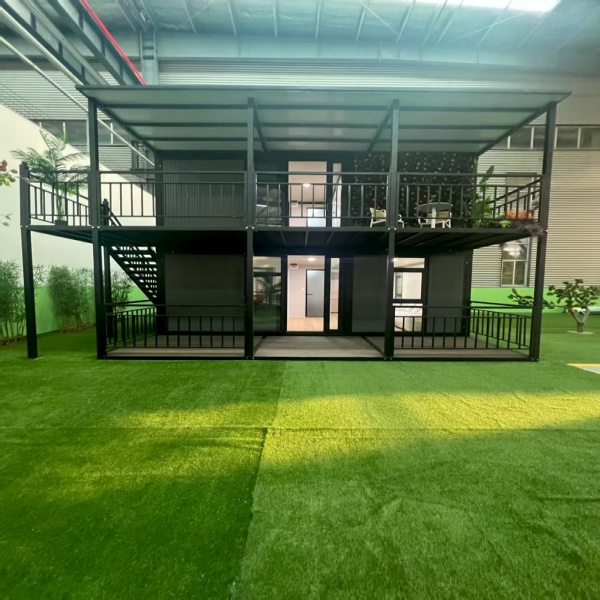-
E-mail
Austin120521@outlook.com -
E-mail
sales@jujiuhouse.com -
Telephone
+86-17864099991 -
Telephone
+86-17854044442
- Chinese
- French
- German
- Portuguese
- Spanish
- Russian
- Japanese
- Korean
- Arabic
- Irish
- Greek
- Turkish
- Italian
- Danish
- Romanian
- Indonesian
- Czech
- Afrikaans
- Swedish
- Polish
- Basque
- Catalan
- Esperanto
- Hindi
- Lao
- Albanian
- Amharic
- Armenian
- Azerbaijani
- Belarusian
- Bengali
- Bosnian
- Bulgarian
- Cebuano
- Chichewa
- Corsican
- Croatian
- Dutch
- Estonian
- Filipino
- Finnish
- Frisian
- Galician
- Georgian
- Gujarati
- Haitian
- Hausa
- Hawaiian
- Hebrew
- Hmong
- Hungarian
- Icelandic
- Igbo
- Javanese
- Kannada
- Kazakh
- Khmer
- Kurdish
- Kyrgyz
- Latin
- Latvian
- Lithuanian
- Luxembou..
- Macedonian
- Malagasy
- Malay
- Malayalam
- Maltese
- Maori
- Marathi
- Mongolian
- Burmese
- Nepali
- Norwegian
- Pashto
- Persian
- Punjabi
- Serbian
- Sesotho
- Sinhala
- Slovak
- Slovenian
- Somali
- Samoan
- Scots Gaelic
- Shona
- Sindhi
- Sundanese
- Swahili
- Tajik
- Tamil
- Telugu
- Thai
- Ukrainian
- Urdu
- Uzbek
- Vietnamese
- Welsh
- Xhosa
- Yiddish
- Yoruba
- Zulu
- Kinyarwanda
- Tatar
- Oriya
- Turkmen
- Uyghur

folding container house
Challenges and Innovations in Folding Container Houses
Folding container houses represent a fascinating segment of modular living solutions that promise flexibility and eco-friendliness. But it's not all smooth sailing. Dive into the practicalities and learn from real-world applications that challenge and redefine the way we think about portable architecture.
Understanding Folding Container Houses
Folding container houses—essentially collapsible structures built for mobility and ease of installation—are often touted as the future of sustainable living. I've had my share of projects where these units seemed like a perfect fit. But there's a lot more nuance than you'd expect. They're not just 'pop-up' homes ready at a whim. Transporting them might be straightforward, but site preparation, utility connections, and local regulations can pose significant hurdles. You can't ignore these aspects if you're aiming for a successful deployment.
In one project with Shandong Jujiu Integrated Housing Co., Ltd., known for its innovative approach in integrated housing, we explored the practical facets of using folding units. Their expertise in modular design was crucial, yet even with their cutting-edge solutions, the reality was as complex as the engineering behind these structures. Check out their offerings at Jujiu House to grasp the breadth of what they offer in this dynamic field.
One recurring challenge is weatherproofing. These structures rely on precise engineering to fold seamlessly, but that same feature can risk water ingress if not done expertly. We realized it's all about balancing between modular convenience and the robustness of a permanent structure.
Adapting to Varied Environments
Each environment demands specific adjustments. On one site, nestled in a more humid locale, we found that standard insulation and sealing techniques weren't cutting it. Condensation became a major issue. The solution lay in consulting with local professionals to adapt the design, an often overlooked but crucial step. Jujiu House provided invaluable support in customizing materials and features to suit local climates, showcasing their flexibility and client-oriented approach.
Wind resistance was another lesson learned the hard way. An open, windy field once turned into a learning ground where stability was tested to the limits. There's a science to anchoring these structures—and it’s not always intuitive. It takes rigorous site assessment and sometimes even a bit of trial and error to nail down the right setup.
What many might underestimate is the impact of logistics. Sure, these units fold, occupy less space in transit, and are easier to maneuver through narrow areas. But once they arrive, the clock's ticking to unfold and secure everything. The crew's expertise and the equipment's reliability become absolutely critical at this stage.
Innovative Uses and Designs
I have seen some incredible design innovations with folding container houses. Gone are the days of uninspired, box-like designs. With companies like Shandong Jujiu Integrated Housing Co., Ltd. pushing boundaries, these homes can now feature stunning architectural elements while maintaining functionality. Creativity here is limitless, from mezzanine levels to expansive decks, all hinging on smart design.
One memorable project involved transforming what was initially a temporary shelter into a permanent community center. By utilizing solar panels and rainwater harvesting systems, we minimized environmental impact while optimizing energy efficiency. These sustainable practices align well with Jujiu House's focus on eco-friendly solutions, as reflected in their extensive product line-up featured on their website.
The customization potential is what truly excites both clients and builders. Clients want unique spaces that feel personal, and folding container houses allow a level of personalization that traditional construction can't match—at least not without exorbitant costs.
Practical Lessons and Future Directions
While there are many success stories, it's crucial not to shy away from talking about setbacks and learning experiences. A common pitfall is underestimating the importance of skilled labor. Assembly seems straightforward, but every project has complexities that require a skilled touch. It's vital to engage knowledgeable workers, something Jujiu House values highly in its operations.
Moreover, it's essential to stay updated on regulatory shifts, as local building codes can change, affecting how these homes are deployed. At times, what was permissible becomes restricted—all part of the evolving landscape of modular housing. Collaborations with firms like Jujiu House help anticipate these shifts, focusing not just on current standards but on adaptability and future compliance.
In conclusion, while the allure of folding container houses is undeniable, the reality involves a blend of technical skill, creativity, and a willingness to adapt. Companies like Shandong Jujiu Integrated Housing Co., Ltd. are at the forefront, transforming potential obstacles into stepping stones for innovation. Whether for personal leisure space or community projects, these structures hold powerful possibilities redefined by experience and evolved through practice.
Related products
Related products
Best selling products
Best selling products-
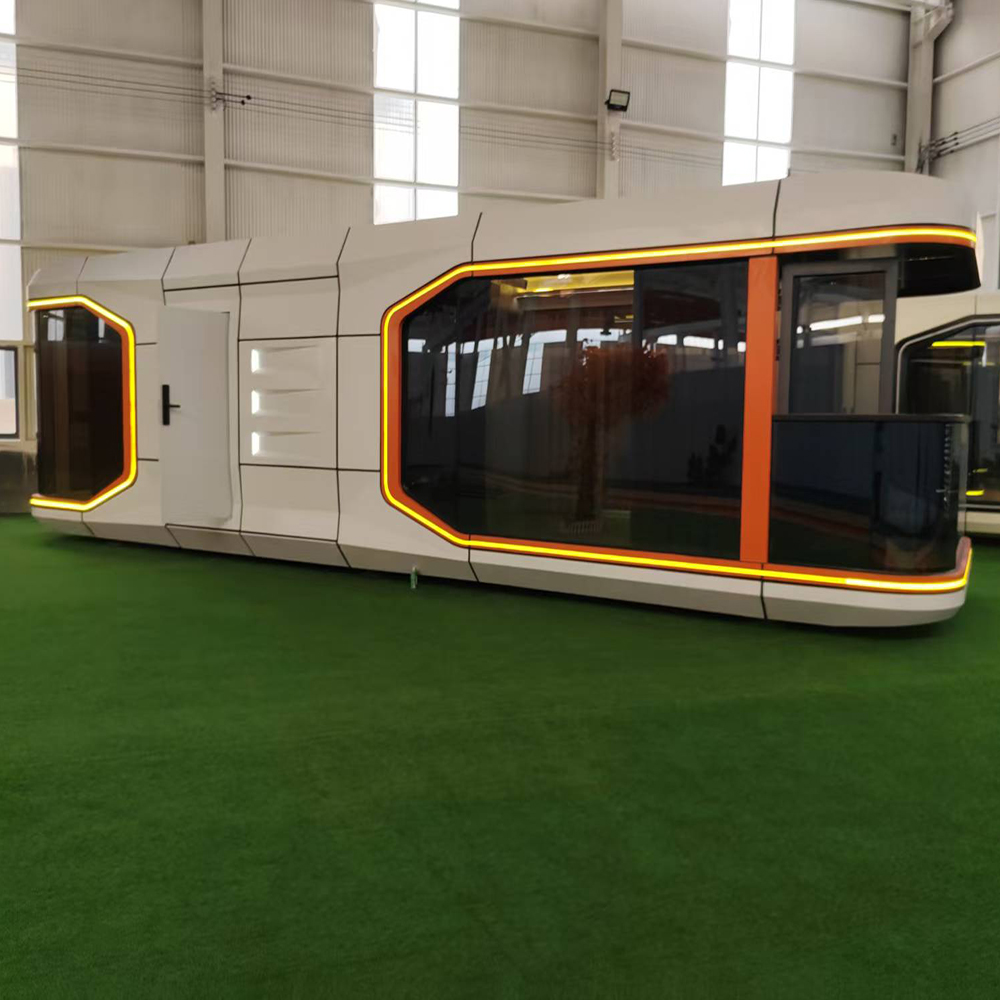 Standard Modern Camping Pod Space Prefabricated Portable Mobile Capsule Room Hotel Bathroom Prefabricated Spaceship House
Standard Modern Camping Pod Space Prefabricated Portable Mobile Capsule Room Hotel Bathroom Prefabricated Spaceship House -
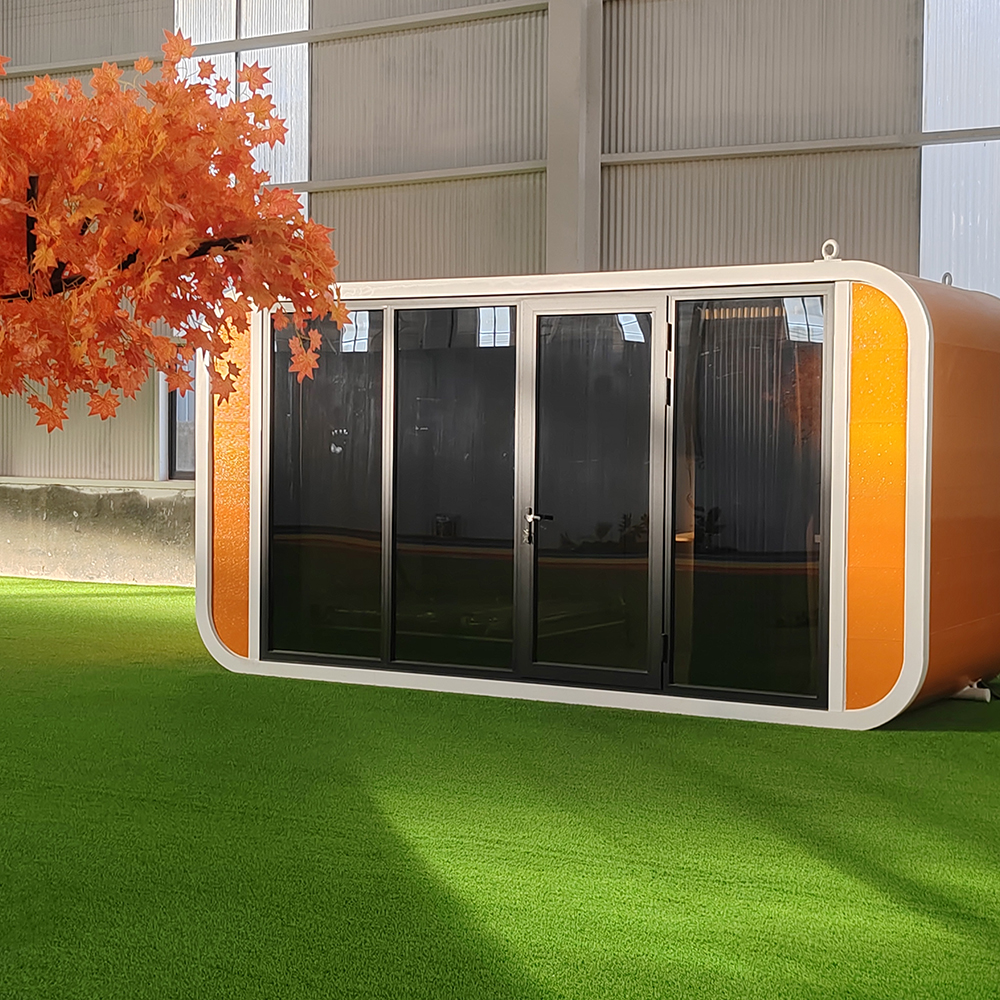 Luxury Prefabricated Living Container House Modular Glass Tiny House Prefab Container Home Apple Cabin
Luxury Prefabricated Living Container House Modular Glass Tiny House Prefab Container Home Apple Cabin -
Two Wing Folding Expandable Container House
-
 Detachable Design Prefabricated Container House Portable Modular Office Building Folding Container House
Detachable Design Prefabricated Container House Portable Modular Office Building Folding Container House -
 Easy Install Customized Detachable Container Homes Extendable House Prefab 2 Floors Expandable Container House
Easy Install Customized Detachable Container Homes Extendable House Prefab 2 Floors Expandable Container House -
 The foldable container house with side wing design can be quickly set up and is suitable for various environments.
The foldable container house with side wing design can be quickly set up and is suitable for various environments. -
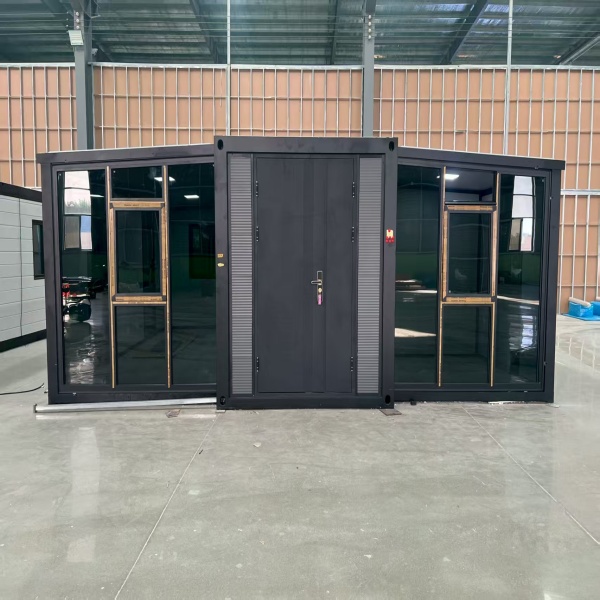 Customizable Office Mobile Home with Flat Roof and Double Wing Expansion Box, Convenient Container
Customizable Office Mobile Home with Flat Roof and Double Wing Expansion Box, Convenient Container -
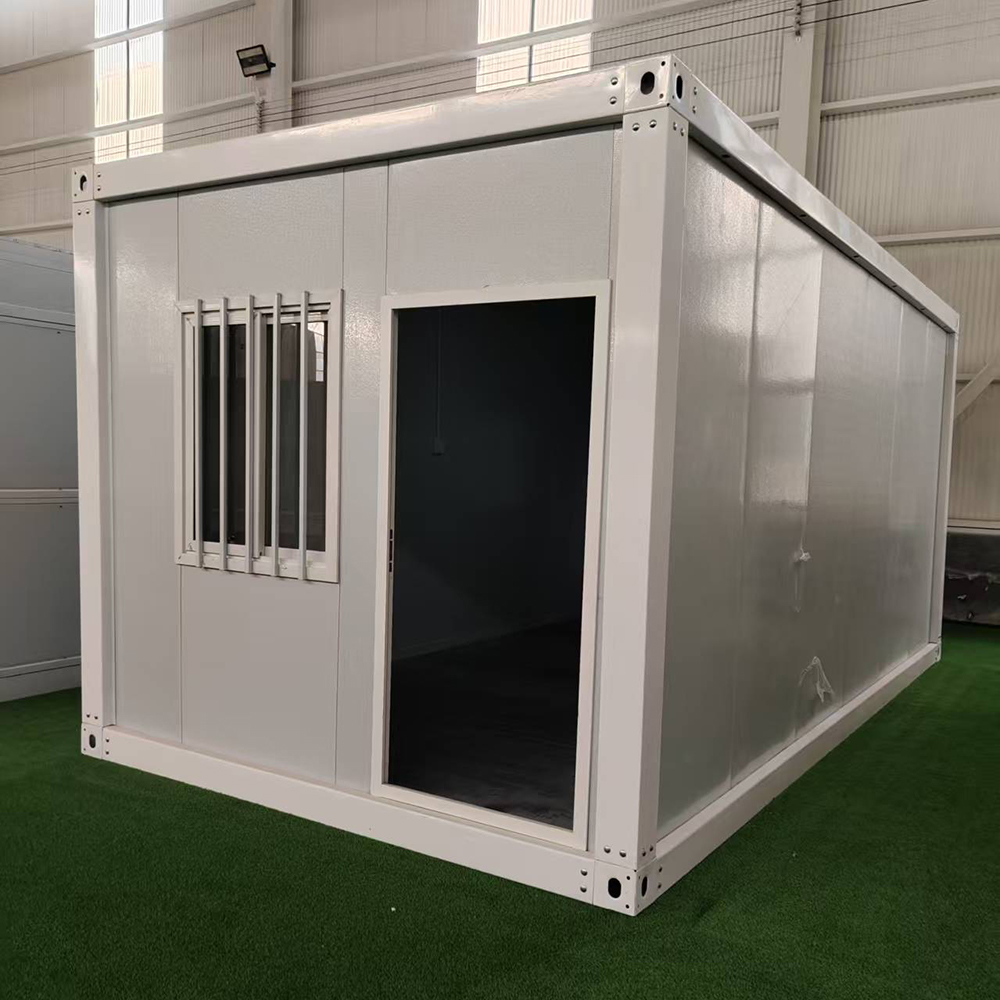 Folding Container Moving House Modular Office Container House Prefab Container for Outdoor Use
Folding Container Moving House Modular Office Container House Prefab Container for Outdoor Use -
 A container house with a terrace and double-wing folding design, suitable for various purposes such as offices, meeting rooms, living rooms, etc.
A container house with a terrace and double-wing folding design, suitable for various purposes such as offices, meeting rooms, living rooms, etc. -
 Luxury Foldable Two Story Container House for Glamping Resort and Villa Hotel
Luxury Foldable Two Story Container House for Glamping Resort and Villa Hotel -
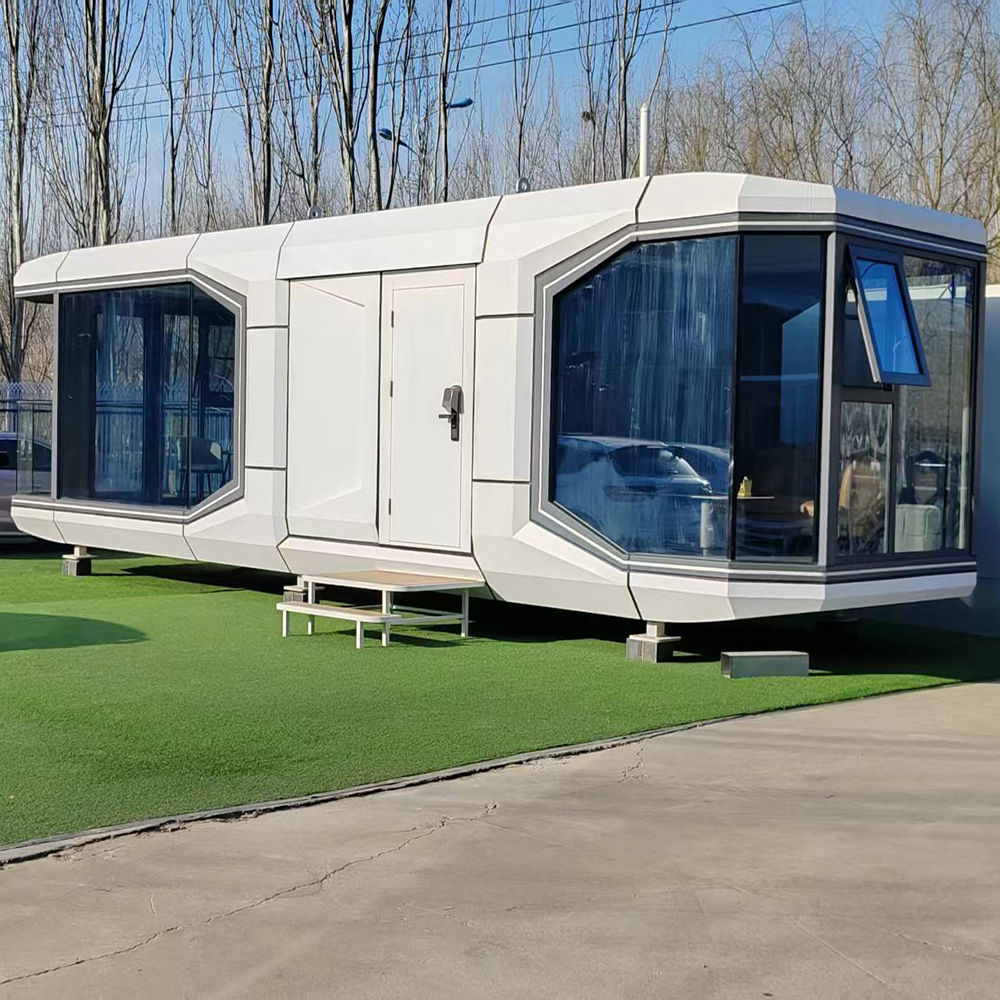 Luxury High Quality 2 Bedroom Container Home Prefabricated Steel Space Capsule for Office Shop Hotel or Outdoor House
Luxury High Quality 2 Bedroom Container Home Prefabricated Steel Space Capsule for Office Shop Hotel or Outdoor House -
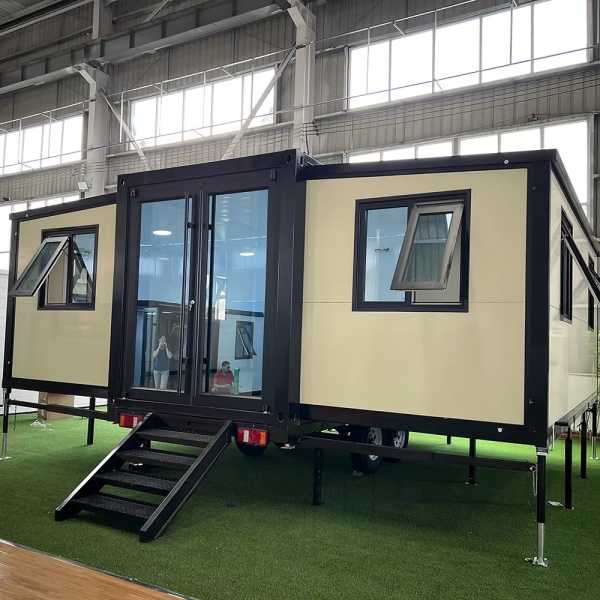 Stair Access Double Wing Expandable Container House | Easy Installation Mobile Office
Stair Access Double Wing Expandable Container House | Easy Installation Mobile Office










